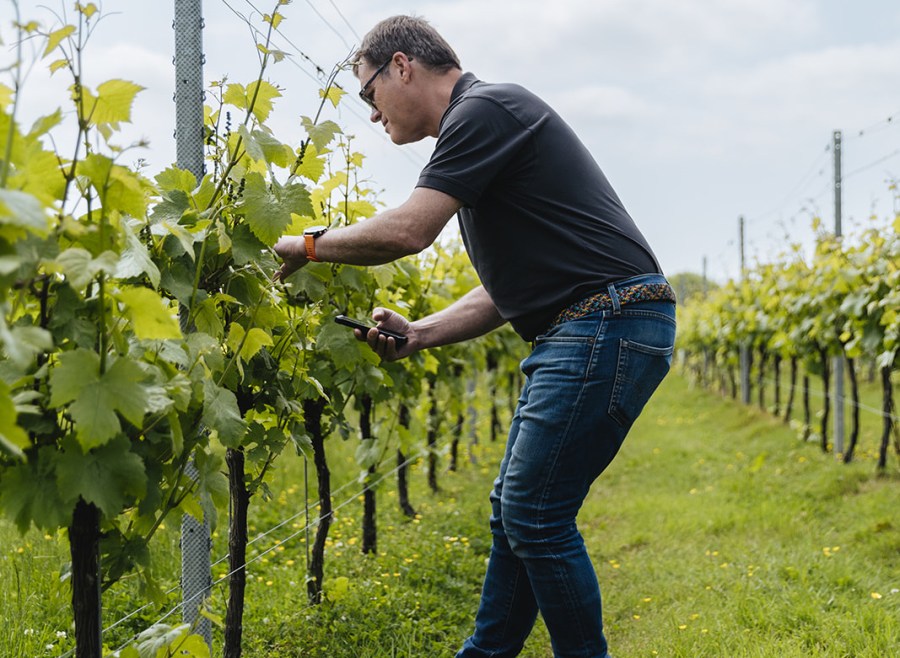Sustainability in vineyards is no longer just a buzzword – it is a reality. Today, growing quality grapes means doing so in a way that protects the environment, preserves soil health, supports workers, and builds long-term resilience. One of the most effective ways to embed sustainability into day-to-day operations is through smart scheduling.
Scheduling in a vineyard isn’t just about staying organised. It’s about reducing environmental impact, using fewer inputs, and making well-timed decisions that align with weather, vine growth stages, and soil conditions.
Reduce ground damage and emissions
Modern tools – such as weather stations, soil sensors, and vineyard software – make it easier to plan tasks with precision. Timing operations like pruning, mowing, spraying, and harvesting can make a real difference to the vineyard’s environmental footprint.
Tractors are among the biggest contributors to carbon emissions and soil damage. Every pass across the vineyard comes with a cost – especially in wet conditions. Working wet soils leads to compaction, which limits root growth, restricts water movement, and reduces long-term soil health.
By grouping tasks to reduce trips, and working in dry conditions where possible, fuel use is lowered and soil structure protected. Even small changes – like mowing only when needed or targeting specific blocks for spraying – can lead to significant improvements over time.
For plant protection, targeted spraying based on pest monitoring and real-time data means fewer applications, lower costs, and better results. It is very important to stick to regular spray intervals, but adjusting your programme to the season’s conditions will reduce chemical use without compromising vine health.
Sustainability is also about people
A vineyard’s most important asset, after the land itself, is its workforce. Seasonal or permanent, local or contracted, these individuals bring skill, knowledge, and care to every task. When workers are treated fairly – through decent pay, proper training, safe conditions, and respect – the benefits are wide-reaching.
From a purely human perspective, ethical treatment is the right thing to do. But the environmental benefits are often underestimated. Well-trained, motivated workers are more likely to carry out tasks with attention to detail. They’re better at spotting disease pressure early, identifying issues in the canopy or soil, and making adjustments that prevent problems before they escalate. This reduces the need for reactive inputs like sprays or corrective pruning – lowering both cost and environmental impact.
A well-supported team also brings consistency and care to machinery use. Tractors are typically operated more efficiently, passes are only made when needed, and equipment is better maintained. These small decisions, made by engaged workers on the ground, add up to less fuel consumption and reduced soil damage over time.
Importantly, ethical practices help retain experienced staff season after season. A stable workforce means less time spent retraining and more time building local expertise.
Teamwork makes it work
At VineWorks, we’ve seen that successful sustainability strategies are built on collaboration. No contractor or consultant can deliver results alone. Growers, vineyard managers, and crews must work together to build a plan that’s both practical and long-lasting.
Our role – developing vineyard strategies and then helping to carry them out – gives us a clear view of what works in the field. True sustainability isn’t about ticking boxes. It’s about making smart choices, being flexible, and improving little by little each season.
Next steps for supporting sustainability
- Soil health: Introduce cover crops, minimise tillage, and apply compost.
- Resource efficiency: Monitor water use, maintain machinery, and reduce chemical inputs through targeted, well-timed applications.
- Biodiversity: Create habitats like hedgerows or wildflower margins to encourage natural pest control and ecological balance.
- Waste reduction: Recycle, reuse materials, and cut down on plastics.
- Join a scheme: Schemes like Sustainable Wines of Great Britain (SWGB) can help you benchmark progress and stay accountable.
- Educate and share: Train your team in sustainable practices and share your learning with the wider community.
Final thought
Sustainability isn’t achieved overnight – it is built step by step, season by season. Scheduling with care supports healthier soils, better crops, happier teams, and a vineyard that can thrive for the long haul. With good planning and shared commitment, it’s a journey worth making – one vine at a time.




